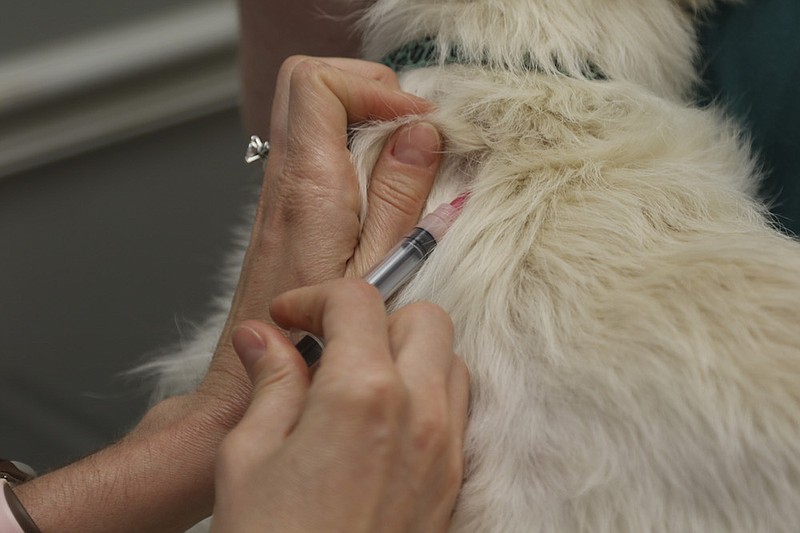A Walker County, Georgia, skunk has tested positive for animal rabies, marking the county's first case this year, health officials said Monday in a news release.
In the release, they reminded residents about the potential dangers of rabies and urged them to make sure their pets are vaccinated against the disease. This is the first confirmed animal rabies case in Walker County since 2014.
"Rabies is always circulating in our wild animal population," said Jason Osgatharp, environmental health manager with the Walker County Health Department. Confirmed cases are relatively rare.
In the release, Osgatharp warned residents to avoid wild, stray and possibly unvaccinated animals that could be infected with rabies, and he said they should take other precautions to protect themselves, their families and their pets.
"Getting your pet vaccinated against rabies is the single best way to protect your pet from rabies," Osgatharp said. "It's important to do it for their protection, for our protection, and because it's state law.
"Reducing the risk of rabies in domestic animals and limiting human contact with wild animals are two measures central to the prevention of human rabies," he said.
Other effective precautions against rabies, according to the health department, include:
> Vaccinate all dogs, cats and ferrets against rabies. Check with your veterinarian to make sure your pets have up-to-date protection against rabies. Remember that vaccination of pets against rabies protects not only the pets but, more importantly, people.
> Don't leave pet food out where wild animals can access it. Leaving pet food out is a sure way of getting wild animals to visit your home and endanger you, your family and your pets.
> Remind children to avoid animals they don't recognize, especially stray or wild animals. They may be infected with rabies.
> Small children should not be left unattended with dogs, even if the dog is a pet or the child is familiar with it.
> Keep pets at home. Obey any county laws requiring that dogs be restrained to the owner's property. Pets that are kept close to home are less likely to encounter a rabid animal.
> Report any raccoon, fox, bat or skunk that is out during the day in a residential area or that is behaving strangely to the local Georgia Department of Natural Resources Game and Fish Division office at 1-800-241-4113.
> Report stray dogs and cats and aggressive or sick-appearing animals to the local animal control office.
> Don't try to assist injured or sick animals without professional help. Even animals that would never bite otherwise can bite when sick or in pain.
> Bats found in sleeping quarters should be captured and tested for rabies even when there is no evidence of a bite wound or contact with sleeping people.
> After-hours calls involving aggressive animals should be made to 911.
> After-hours calls involving animal bites and their potential for rabies exposure should be made to 866-PUB-HLTH (866-782-4584).
- Compiled by Alex Chambliss
